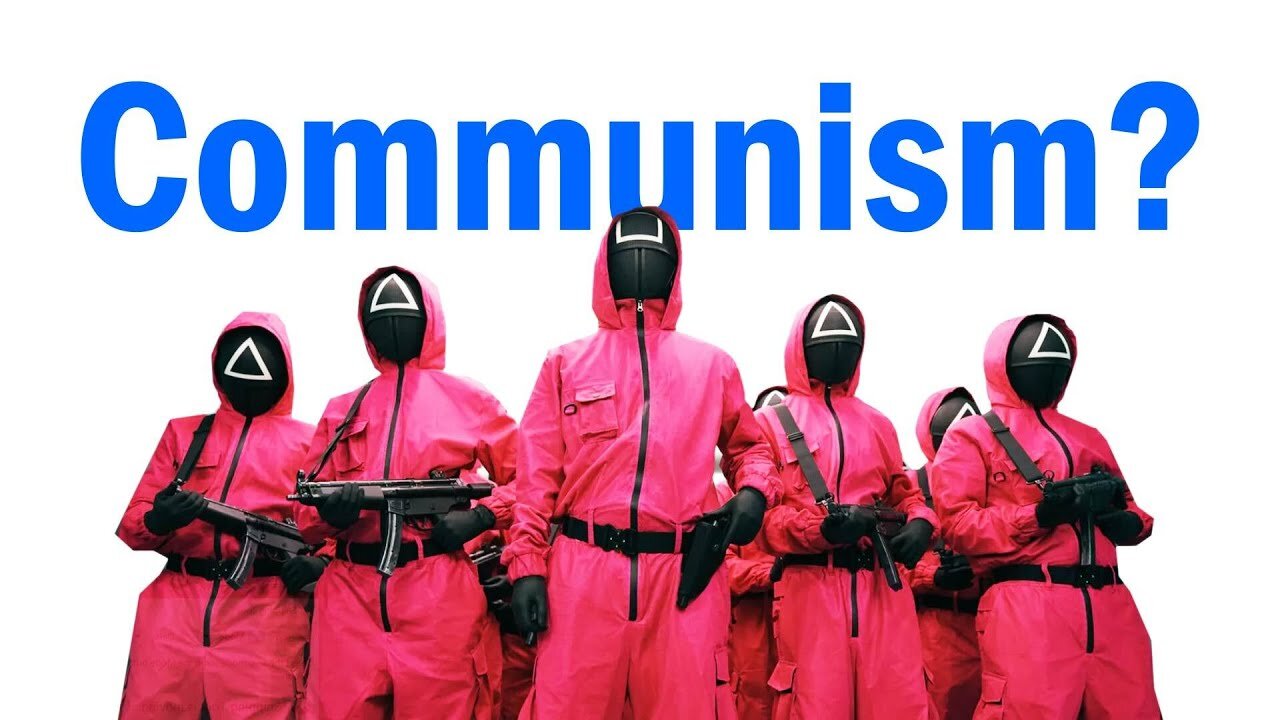Premium Only Content

Squid Game Says More About Communism Than Capitalism
Video by ReasonTV
The breakout Netflix series contains critiques of a decidedly "anti-capitalist" political and economic system that's haunted the Korean Peninsula.
----------------
Squid Game, the breakout Korean series about players competing to the death for a giant piggy bank full of cash, is Netflix's biggest series launch, and co-CEO Ted Sarandos says "there's a very good chance it will be our biggest show ever."
Critics have argued that the show offers a devastating critique of contemporary capitalism.
In a Jacobin review headlined, "Squid Game Is An Allegory of Capitalist Hell," the writer asserts that "Korea's extreme inequality is Squid Game's central theme." New York Times reporter Jin Yu Young wrote that "it has…tapped a sense familiar to people in the United States…that prosperity in nominally rich countries has become increasingly difficult to achieve, as wealth disparities widen and home prices rise past affordable levels."
The show's creator Hwang Dong-hyuk told Variety that he "wanted to write a story that was an allegory or fable about modern capitalist society, something that depicts an extreme competition, somewhat like the extreme competition of life."
"Is there a theme more unifying in global pop culture than 'capitalism is bad?'" asks Vulture writer Roxana Hadadi in her recap of one episode before continuing, "It helps that the statement is true, of course…"
But Squid Game has a much richer and more resonant takeaway than "capitalism is bad."
(Warning: This article and video contain spoilers.)
The series hints at a different message when Front Man, the Darth Vader–esque manager of the dangerous and lucrative series of competitions, chastises an employee who violated the rules. "You've ruined the most crucial element of this place: equality," he says.
Later, players are invited to witness the mass execution of those who violated the "pure ideology" of this insulated world when they participated in an organ harvesting scheme for personal enrichment, with the emphasis on the enrichment as the heart of the crime. Throughout the games, the faceless pink-uniformed workers are all masked with only symbols distinguishing their ranks in the collective's hierarchy. Meanwhile, the elites sit cloistered together, observing the spectacle from above.
Does this all sound like a reference to capitalism or a different economic system—the one that's actually haunted the Korean Peninsula?
Produced by Zach Weissmueller; graphics by Calvin Tran
Photo credits: Dong-Min Jang/ZUMAPRESS/Newscom; Wang Yiliang / Xinhua News Agency/Newscom; Rod Lamkey - CNP/Sipa USA/Newscom
-
 13:09
13:09
Forrest Galante
1 day agoWildlife Expert Reacts To Deadly Australian Animal TikToks
78.3K14 -
 23:47
23:47
GritsGG
2 days agoThe Forgotten Best Sniper Support AR!
27.4K4 -
 10:18
10:18
The Pascal Show
17 hours ago $0.44 earned'I WILL NOT GIVE UP ON MY BABY!' Emmanuel Haro's Mom Breaks Silence From Jail?!
5.64K -
 LIVE
LIVE
Lofi Girl
2 years agoSynthwave Radio 🌌 - beats to chill/game to
180 watching -
 2:33:04
2:33:04
Badlands Media
14 hours agoBaseless Conspiracies Ep. 147: Pole Shifts, Plasma Skies, and the Truth About Cataclysms
171K17 -
 4:33:42
4:33:42
Drew Hernandez
9 hours agoISRAEL BOMBS GAZA HOSPITAL ON LIVE TV KILLING AT LEAST 20 INCLUDING JOURNALISTS & CIVILIANS
24K74 -
 2:55:23
2:55:23
TimcastIRL
9 hours agoTrump Orders Specialized National Guard Units To Combat Crime In Cities, Dems Furious | Timcast IRL
212K147 -
 6:22:03
6:22:03
SpartakusLIVE
10 hours ago#1 Rocket CHAMPION of Verdansk wields UNSTOPPABLE new META
84.2K5 -
 2:55:11
2:55:11
Barry Cunningham
10 hours agoPRESIDENT TRUMP MADE TODAY A VERY BAD DAY TO BE A DEMOCRAT!
103K66 -
 1:15:29
1:15:29
Flyover Conservatives
1 day agoFrom Cool to Cringe: How Democrats Lost America’s Ear | FOC Show
49.7K14